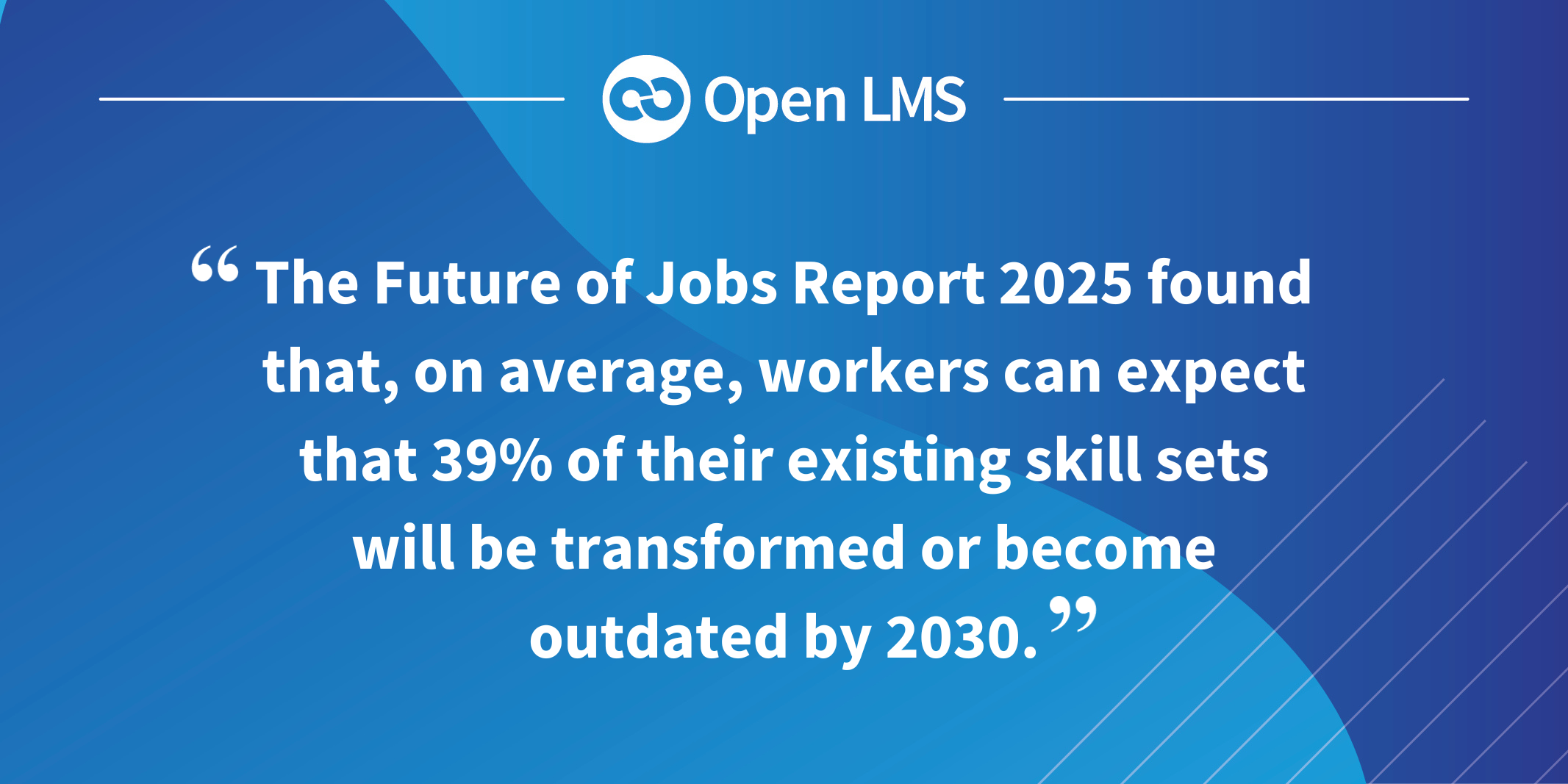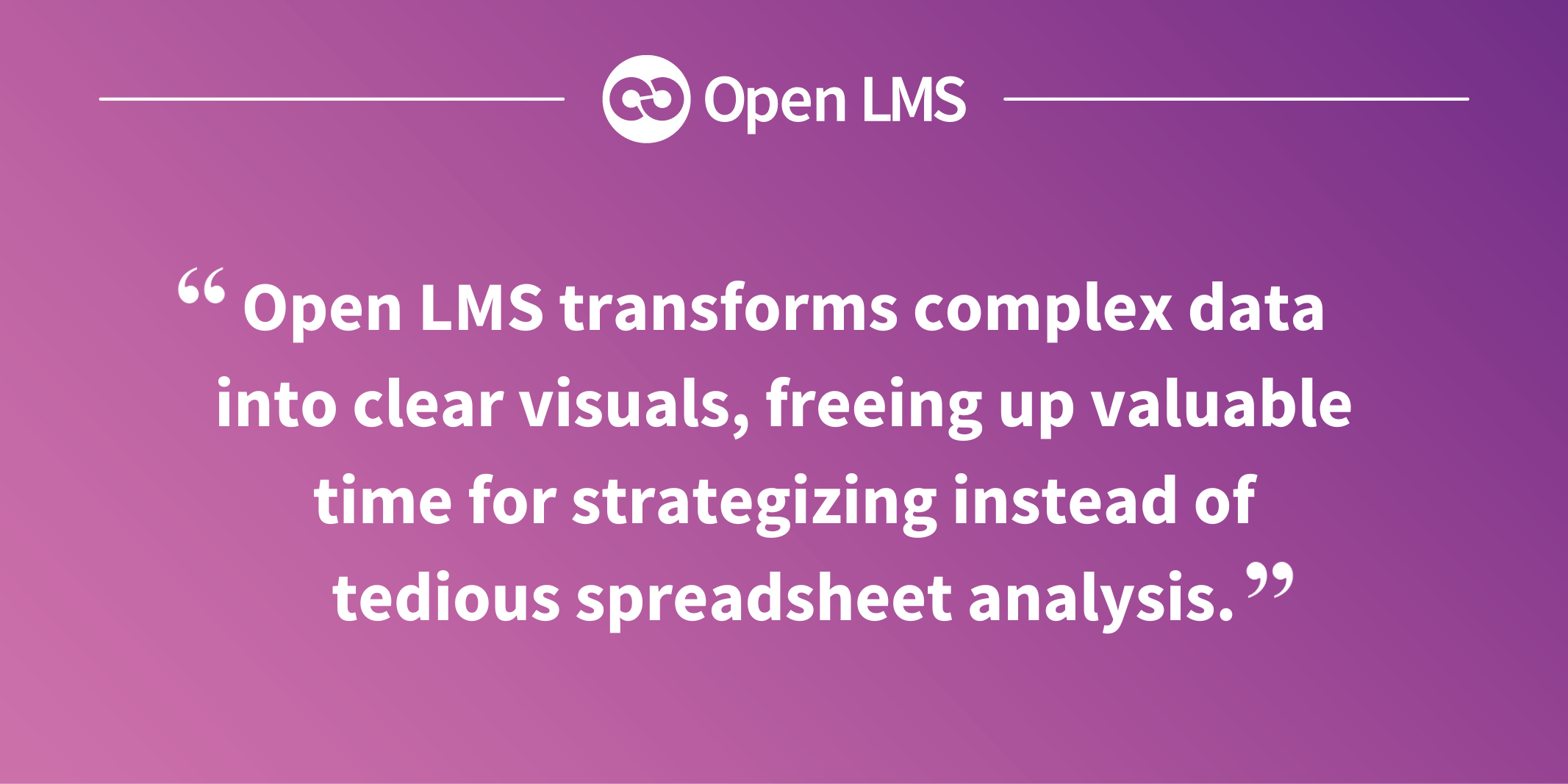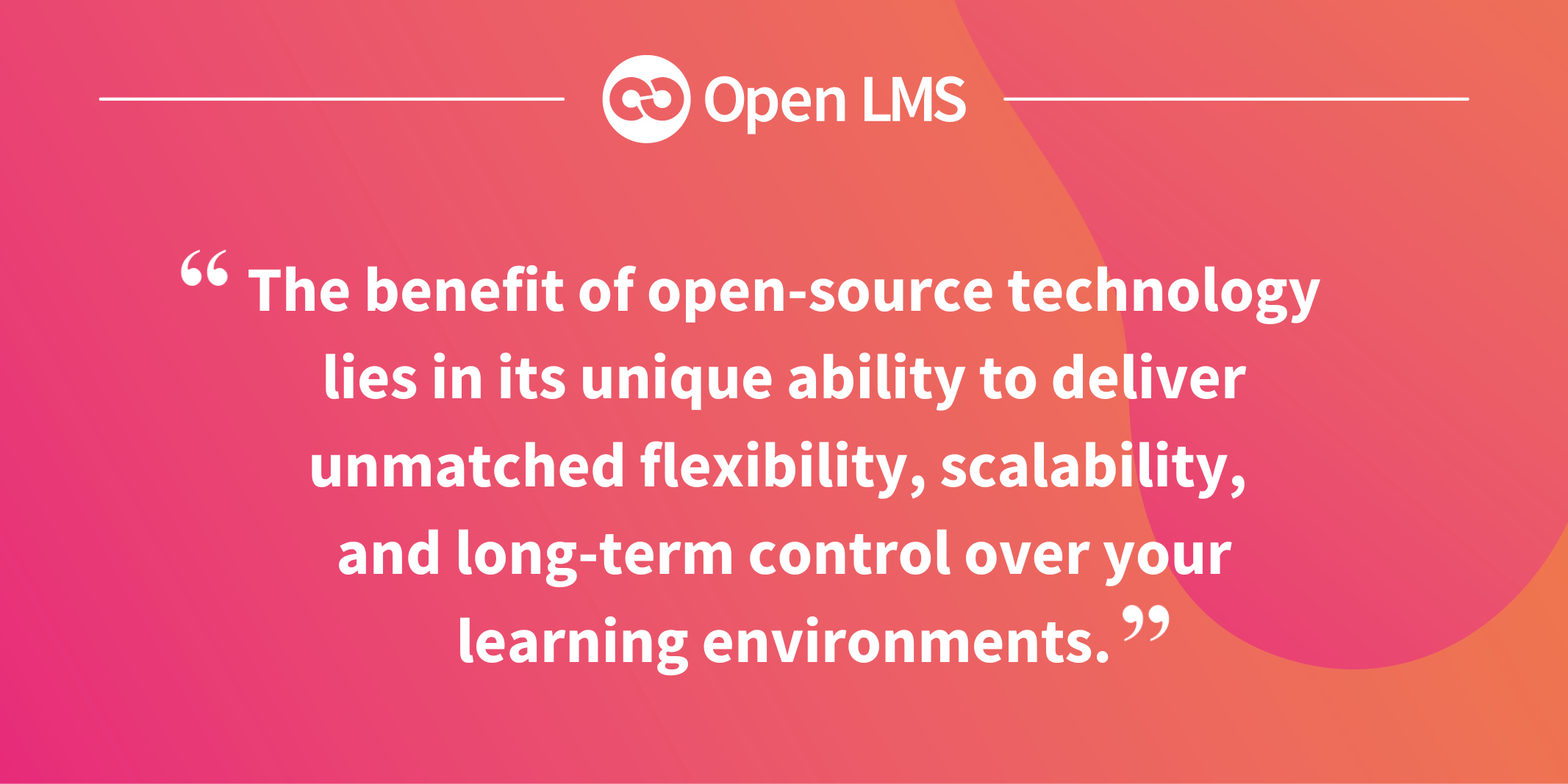5 Ways to Future-Proof Your Workforce With a Flexible Upskilling Strategy
Bill Conran, Head of Global Sales at Open LMS, shares expert insights on staying ahead of the curve.
Rigid, outdated training methods will fail to engage your staff effectively, but a flexible, future-ready strategy and an innovative and powerful open-source solution like Open LMS can help you remain competitive. Want to learn how? Read on for five ways to offer scalable and agile learning so you can future-proof your business.
Why the Skills Gap Calls for a Revised Skills Strategy
Today almost 50% of learning and talent development professionals see a skills crisis, with 49% agreeing with the statement: “My executives are concerned that employees do not have the right skills to execute our business strategy.”
Without the right skills, your organization can expect lower employee engagement, challenges in remaining competitive, and higher rates of attrition. It's no wonder that the World Economic Forum’s Future of Jobs Report 2025 found that skills gaps are considered the biggest barrier to business transformation. Accordingly, a whopping 85% of employers surveyed plan to prioritize upskilling their workforce.
Choosing the right strategy for your upskilling initiatives is absolutely imperative. Outdated training approaches often involve one-size-fits-all programs that lack personalization and flexibility. Over the course of my career in the eLearning industry, I’ve seen that these methods often result in low engagement levels as they tend not to address individual learning styles or career goals.
DOWNLOAD THIS RELATED EBOOK | ‘8 Must-Ask Questions Before Investing in Your Next LMS Platform’

Bringing Your Scalable and Flexible Learning Strategy to Life
When you embrace scalable and personalized learning and make use of suitable technology, overcoming skills gaps to stay ahead in the evolving environment is possible.
Here's how you can approach upskilling to ensure your organization doesn't fall behind during periods of rapid change:
1. Centralize Learning to Accelerate Skill Acquisition
When learning is scattered across your business—in disparate software or HR systems, for example—you can't control your upskilling strategy. Without complete visibility over the training that exists in your organization, it’s hard to track whether learners are using or benefiting from your programs.
Consolidating learning within a single solution, on the other hand, allows you to observe training outcomes consistently. It also simplifies access and streamlines delivery, which reduces psychological barriers to engagement for your students. When learning is easily accessible in the same place, they’re more likely to return to it.
2. Personalized Learning and Development
Learning and development looks different for every employee. Even when learners have the same job titles, they can have vastly different overall skill sets and preferences. The Future of Jobs Report 2025 found that, on average, workers can expect that 39% of their existing skill sets will be transformed or become outdated by 2030. Helping your employees keep up is a matter of offering new learning as and when it is required.
The most effective training strategies acknowledge individual differences and provide tailored pathways for growth. I’ve seen that customized learning content, focused feedback, and coaching and mentoring can help learners develop the specific skills they need to overcome their individual skills gaps. Offering a variety of options to access content, whether via in-person training, desktop-based eLearning, or mobile learning, will help learners choose the option that best suits their personal preferences.
KEEP READING | ‘Personalizing Professional Development: What You Need to Know’

3. Use Data to Measure Impact
If you know me, you know I love the stories data can tell. I’m a firm believer in data-informed strategies. The last thing you want when you’re creating a learning strategy is a siloed tech stack that doesn't offer any insight into your training programs.
Using a powerful LMS is key for gaining the insights you need to continuously adapt your training program and improve its efficacy. With Open LMS, you have full visibility of how learners across your organization are making use of training. You can also generate custom reports to communicate your organization's specific learning challenges with key stakeholders. Open LMS transforms complex data into clear visuals, freeing up valuable time for strategizing instead of tedious spreadsheet analysis.
4. Enable Anytime, Anywhere Learning
When you try to urgently close skills gaps, I know that it can be tempting to try and put extra pressure on learners and strong-arm them into complying with training initiatives. However, simply giving learners more options to complete training where and when it suits them may be easier and more effective.
Today, it's imperative that any learning strategy at the corporate level incorporates mobile training. Look for a mobile learning solution that lets employees:
- Easily access courses directly from their mobile devices using a simple and intuitive app.
- Download content for offline use—so they can keep their learning on track even when they don't have internet access.
- Receive course notifications and messages, reminding them of important deadlines and helping them stay motivated to learn.
KEEP READING | ‘Open-Source vs Closed-Source LMS: Understanding Key LMS Technologies’

5. Stay Agile and Scale Easily With Open-Source Flexibility
Using closed-source software for your learning solution has significant drawbacks. You may pay high licensing fees, which place pressure on your budget and keep you from pivoting to better solutions should the need arise.
Closed-source software may lack customization options, meaning you have to make do with a solution that isn't entirely fit for purpose. Your organization will also be dependent on vendor support for updates and maintenance. These factors can reduce your flexibility and prevent you from scaling your learning solution when you need to.
Open-source technology, on the other hand, has the unique ability to deliver unmatched flexibility, scalability, and long-term control over your learning environments. Furthermore:
- Your team will have the ability to customize your learning solution without dealing with restrictions from the vendor.
- You can easily adjust software interfaces to suit your brand as required.
- You have the freedom to integrate third-party tools or systems to ensure your business can respond to new upskilling needs as it grows and changes.
- You can quickly adapt code to meet new requirements as they arise—meaning evolving compliance standards won't phase you.
- Open-source's transparency allows for quicker detection and resolution of security vulnerabilities by a global community of developers.
- Open-source platforms empower you to make use of emerging technologies to respond to skill gaps as they arise, without needing to wait for a vendor to update their solution.
Future-Proof Your Skills Strategy With Open LMS
If you're ready to embrace an agile solution that empowers your employees, adapts to changing needs, and provides valuable insights for continuous improvement, we’re here to help. Open LMS offers the customization, scalability, and control you need to build a future-ready workforce.
Take the next step in transforming your learning and development strategy—request a demo today to discover how we support your organization's long-term success and upskilling goals.